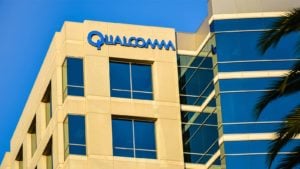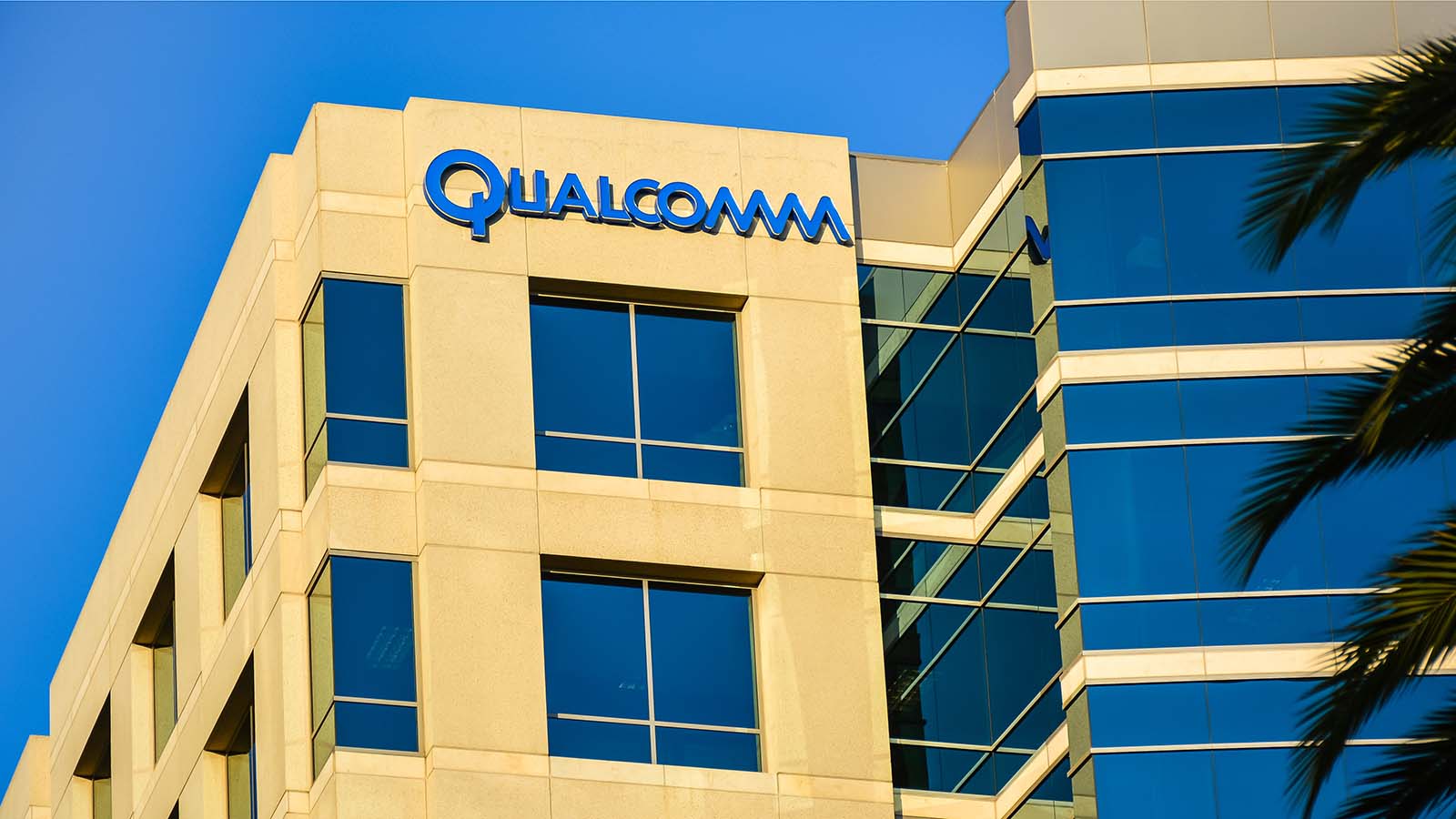With the global economy in a recession and China-U.S. tensions at all-time highs, now is not a good time to be exposed to higher-end smartphones. As a result, investors should sell Qualcomm (NASDAQ:QCOM) before Qualcomm stock follows Apple down.

In a column published on Mar. 13, I contended that “Apple (NASDAQ:AAPL) is likely to be hit hard by a recession.” I added that, given the high cost of iPhones, “I would hypothesize that iPhone sales and, consequently, Apple’s results, would drop tremendously during the next recession.”
About a month later, Goldman Sachs reached a similar conclusion. Saying that the economic downturn would hurt iPhone sales, the firm downgraded Apple stock to “sell,” Goldman estimated that iPhone sales would tumble 36% year-over-year in the second quarter.
That’s very bad news for Qualcomm, which makes chips for the iPhone and other smartphones. In the first quarter of this year, its chip business generated $3.6 billion of its $5.1 billion of revenue.
Further, the Wall Street Journal reported in February that Qualcomm was making more money from expensive 5G phones than from less costly devices. Similarly, the company said in February that 5G devices were pushing its average selling prices higher.As the recession takes hold around the world, sales of such devices will likely drop sharply.
So it wasn’t surprising that Goldman also cut its rating on QCOM stock to “sell” from “neutral,” saying that weak smartphone sales would hurt its chip business as well as its licensing revenue. The chip and licensing businesses together in Q1 accounted for nearly all of the company’s revenue.
Indeed, given the weaker than expected demand for 5G devices made by Apple, Samsung, and other suppliers, the company’s Q2 top and bottom lines are likely to come in below analysts’ average outlook. As a result, QCOM stock will likely decline.
Already in February, Quacomm predicted that it would sell 10 million to 30 million fewer chips and modems this year than it had in 2019. TheStreet blamed the decline on increased competition from Taiwan-based MediaTek. But whatever the reason, the recession is only going to make the situation worse for Qualcomm and those who own QCOM stock.
U.S.-China Tensions Could Hurt Qualcomm Stock
In my March column on Apple, I noted tha many media outlets have reported that iPhone sales in China (had) dropped sharply. For example, “a Chinese research firm estimated that iPhone sales had plunged 61% year-over-year in February,” I reported.
Noting that Beijing had sought to blame the U.S. for the coronavirus outbreak, I suggested that anti-American sentiment, in addition to the epidemic, had likely contributed to weak iPhone demand in China.
Since my previous column was published, the tension between the U.S. and China has greatly increased, as President Donald Trump and other Republicans have much more vocally accused Beijing of negligently handling the epidemic.
That anti-American sentiment may reduce Qualcomm’s revenue not only from Apple, but from Chinese smartphone makers as well.
Given the intense tensions between the U.S. and China, Chinese smartphone makers like Huawei, Oppo, Lenovo (OTC:LNVGY), and Xiaomi (OTC:XIACF) may be reluctant to incorporate Qualcomm’s chips into their devices. Since Chinese smartphone makers now control the lion’s share of the Asian nation’s market, that would be a really big deal for Qualcomm and QCOM stock.
The Bottom Line on QCOM Stock
The recession and anti-American sentiment among China’s citizens are likely to put a great deal of pressure on Qualcomm’s results going forward. Yet the shares have only dropped 18% this year.
Further, the stock is trading at a price/earnings ratio of 20 and a price/sales ratio of nearly four. Those ratios are not very low at all. Consequently, I recommend that investors sell their shares.
Larry Ramer has conducted research and written articles on U.S. stocks for 13 years. He has been employed by The Fly and Israel’s largest business newspaper, Globes. Larry began writing columns for InvestorPlace in 2015. Among his highly successful, contrarian picks have been GE, solar stocks, and Snap. You can reach him on StockTwits at @larryramer. As of this writing, he did not own any of the aforementioned securities.
